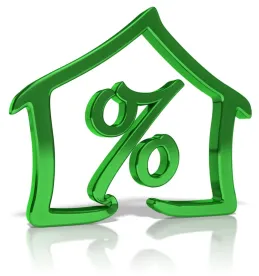There are a number of financing options to consider when purchasing a home, one of which is the interest-only mortgage. This type of mortgage requires a homeowner to pay only the interest that accrues on the loan each month. None of the principal is paid off until the interest-only period expires. The length of the interest-only periods can vary, but payments are relatively low during this time. After expiration of the interest-only term, the buyer is then required to make monthly payments for the principal.
Traditionally, interest-only mortgages were used when home prices were so high that a conventional mortgage payment was out of a borrower’s range. They gave homeowners more bang…or, specifically more house…for their buck. Many saw interest-only loans as one of the many contributing factors to the foreclosure crisis. Freddie Mac stopped backing the loans in 2010; as a result, fewer lenders now offer interest-only mortgages and those that do utilize strict qualifying standards.
This kind of mortgage still presents some advantages. The extra cash that an interest-only mortgage payment leaves a homebuyer with can be used for other purposes, such as to pay off school loans or to upgrade the home. The key, as I see it, is to invest the saved money wisely or put it into other appreciating assets. Ideal candidates for this type of mortgage are those who are certain that they will sell the house before the interest-only period ends or individuals who may have unpredictable income or earnings with a large variable component. For example, brokers who work on a commission structure and whose incomes can fluctuate dramatically can certainly benefit from the flexibility, if they commit to paying the principal when the income is available.
Perhaps the most significant disadvantage to interest-only mortgages is the potential for “payment shock” at the conclusion of the interest-only period. This can be a devastating situation for borrowers who fail to plan properly. There is always the risk that the value of the home will fall during the interest-only period, leaving a homeowner owing more on the home than it is worth.
Borrowers using this particular financing plan should assess their abilities to stay within a financial plan and determine upfront how the cost savings will be used. An interest-only mortgage is not for everybody, but for some, it can be a helpful tool in an ever-changing financial landscape



 />i
/>i

